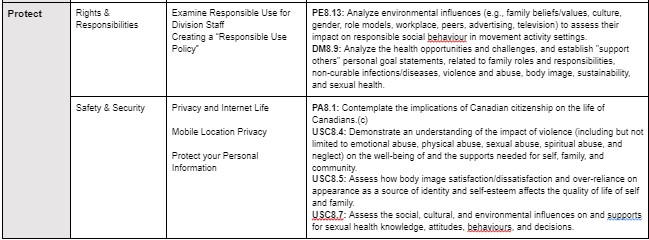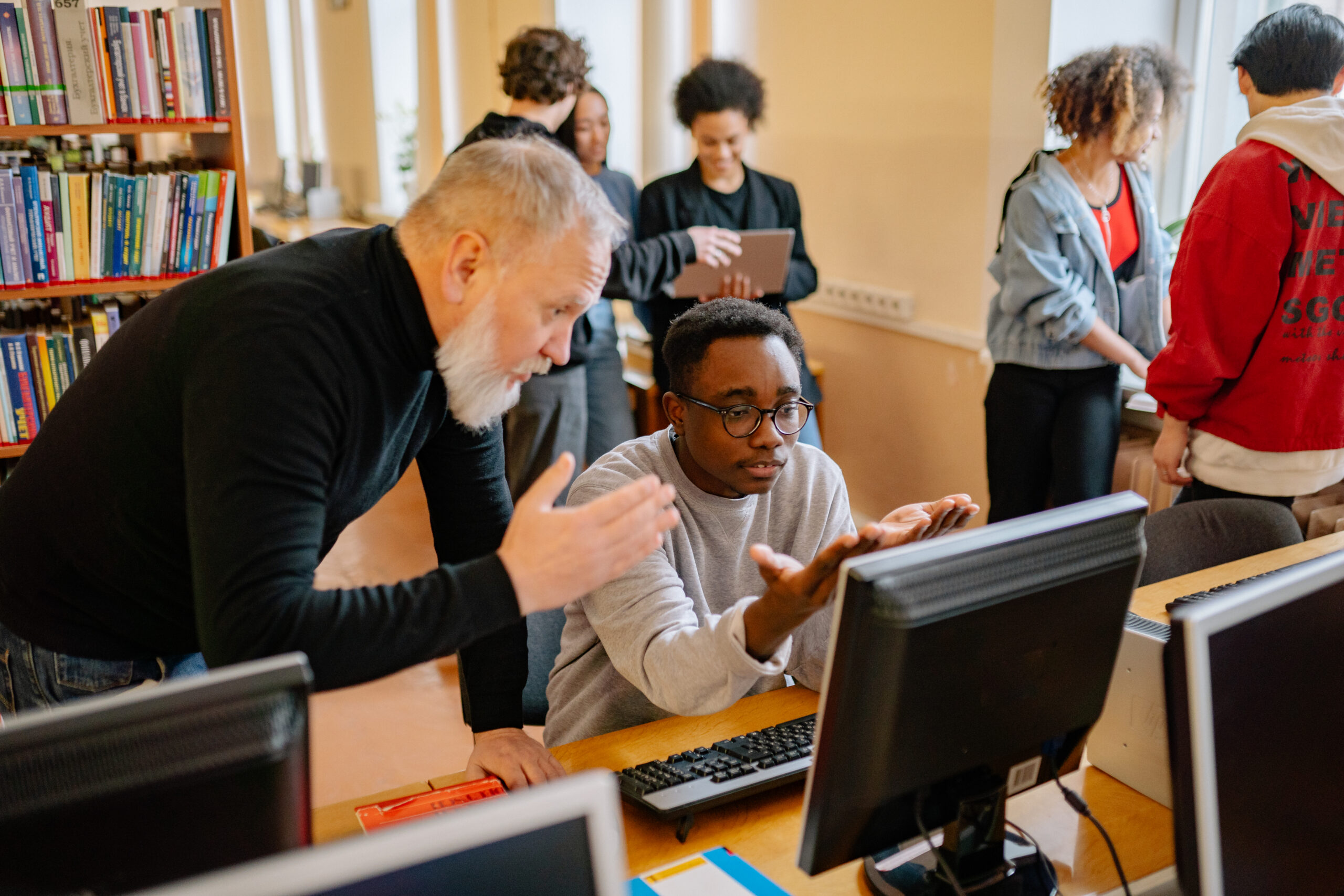Educators and schools have a responsibility to help their students develop a digital footprint.
I have been a part of this discussion in other EC&I classes, as well as some spirited debates with colleagues in the classroom. While I have really enjoyed learning about technology, from its foundations to applications in the classroom (or for school projects), I am still not 100% onside with it being the school’s job. Maybe that is just me being selfish with being comfortable. Maybe it is me struggling with the current curricula on my desk. Maybe it is me being cynical… another ‘thing’ that has turned into a school job over a home job. It takes a village, and the students are out of the school more than they are in it. How would digital citizenship development be monitored? In my experience, online issues come to the school and that is where it is dealt with. Sometimes these issues are brought to the school by parents.
Change My Mind
JR and Laura did an incredible job of presenting reasons why to agree with this statement. In today’s age of technology, it is crucial to teach students how to use technology responsibly and appropriately. A positive digital footprint can boost students’ reputations and open up more opportunities, while a negative one can have long-lasting consequences.
Fortunately, many schools have acknowledged the importance of digital citizenship and integrated it into their curriculum. By educating students about online privacy and security, how to evaluate online sources, and how to communicate effectively online, schools can equip students with the skills they need to be responsible digital citizens. My current school has put together a scope and sequence for teaching digital citizenship. Although it is a couple of years old, it remains relevant, following the Respect, Educate Protect Framework. It is something that I know I should familiarize myself with at a deeper level.

However, digital citizenship should not be restricted to the classroom. It is essential for parents to be part of these discussions, and for schools to offer resources and assistance to families who may not have the knowledge or skills to navigate the digital world. By collaborating, educators, parents, and students can establish a positive digital culture and ensure that the next generation is ready for the challenges of the digital age.
By teaching digital citizenship and providing opportunities for practice, schools can encourage students to use technology responsibly and appropriately, leading to a positive digital footprint that can benefit them for years to come.
Stubborn As a Mule
On the other side of this debate, Jessica and Rahima offered up some points that jumped at to me as to why educators and schools should not be responsible for teaching students how to develop a digital footprint. Paul Davis, in his TEDx lecture, “Accountability & Responsibility in a Digital Age” shone a light on these two very important elements, that are applicable to anything anyone participates in.
Schools have limited resources and time, and other critical literacies need to be taught to students besides media literacy. Therefore, prioritizing digital citizenship above other vital skills is unfair. It is not fair to hold educators liable for any inappropriate content students share online – it could have severe and long-lasting consequences for the teacher, as well as the student.
Parents should also have the opportunity to have a say in what their children are taught in school, including digital citizenship. The decision of what to include in the curriculum should not be solely up to educators. Teenagers’ impulsive nature can lead to sharing stories or photos that could be harmful, leading to bullying or blackmail. This issue could also worsen social anxiety, which is not ideal for school environments.

A big red flag for me is that not all teachers are experts in digital literacy, and expecting them to be so is unrealistic. Many adults struggle with these issues themselves, so it’s not reasonable to expect teachers to be experts in this field. It is also important to consider teacher burnout. Expecting teachers to teach digital citizenship on top of their already overwhelming workload could lead to burnout.
Rather than explicitly teaching digital citizenship, the focus should be on developing global citizens who take responsibility for all aspects of their lives, including online behavior.
When you leave school, you’re going to leave with two things guaranteed to you: an education and a reputation.
Paul Davis
While modeling responsible digital citizenship and setting boundaries in relationships is vital, I don’t believe that it is the responsibility of educators and schools to teach digital citizenship explicitly. It is like asking driving instructors to teach all aspects of life. Educators should not be expected to fill in for parent negligence, which often includes sending young people into the digital world without fully preparing them for it. Paul Davis ends his TEDx lecture with a question for young people, “Think about your parents and ask, ‘Am I going to make them proud?'” That is a great question for anyone, at any age. Given my age, I have learned to live with technology as a part of life, and with that comes mistakes. If I am being honest, I will have definitely let my parents down at some point in that journey. What about you?
Bart I think that this is a great post. I often think about the volume of things that elementary and middle school teachers are tasked with teaching, adding one more thing to the list certainly feels overwhelming. I particularly agree with the idea that “Many adults struggle with these issues themselves, so it’s not reasonable to expect teachers to be experts in this field.” So I get stuck on the idea that they are to be the only ones responsible for teaching these things. On the other hand however I wonder about our role in preparing students for the future, is it critical at a young age that students understand the long term impact of their digital future? In passing this conversation came up with my kids and my colleagues kids who are all under the age of 9 and they already knew about their digital footprint and even the both my colleague and I consider ourselves tech savvy it wasn’t us who taught them it was school. I’m still not sure where I land to be honest…
I thoroughly enjoyed reading your blog !! It is so true that teachers already are having their hands full with tons of responsibilities and with that teaching students about digital footprints is another task which can be an other challenge for the teachers around. One of a big issue which is normally faced is the difference between norms and values at the personal level and at the teachers’ side, so it can not be done as a responsibility by one of a side. Whole community at every step has to take it as an ongoing process !